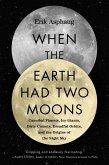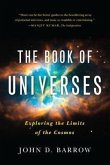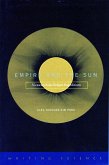As contemporary cosmologists explore the universe's vastness and the nearly insignificant role mankind plays in it, the repercussions from Copernicus's radical views continue to resound. The author provides an enlightening and readable explication of Copernicus's book and epoch, and the momentous clash between the two.
In 1543, the Polish astronomer Nicolaus Copernicus lay on his deathbed, reportedly holding his just-published masterpiece, The Revolutions of the Heavenly Spheres, in his hands. Placing the sun at the center of the universe, Copernicus launched modern science, leading to a completely new understanding of the universe, and humanity's place within it. But what did Copernicus really believe? Some argue that he anticipated the vast secularizing impact his ideas would have on history. Others contend that Copernicus was a man of his time and, on the whole, accepted its worldview. William T. Vollmann navigates this territory with the energetic prose and powerful intelligence for which he is known, providing a fresh and enlightening explication of Copernicus, his book, and his time, and the momentous clash between them.
Hinweis: Dieser Artikel kann nur an eine deutsche Lieferadresse ausgeliefert werden.
In 1543, the Polish astronomer Nicolaus Copernicus lay on his deathbed, reportedly holding his just-published masterpiece, The Revolutions of the Heavenly Spheres, in his hands. Placing the sun at the center of the universe, Copernicus launched modern science, leading to a completely new understanding of the universe, and humanity's place within it. But what did Copernicus really believe? Some argue that he anticipated the vast secularizing impact his ideas would have on history. Others contend that Copernicus was a man of his time and, on the whole, accepted its worldview. William T. Vollmann navigates this territory with the energetic prose and powerful intelligence for which he is known, providing a fresh and enlightening explication of Copernicus, his book, and his time, and the momentous clash between them.
Hinweis: Dieser Artikel kann nur an eine deutsche Lieferadresse ausgeliefert werden.








